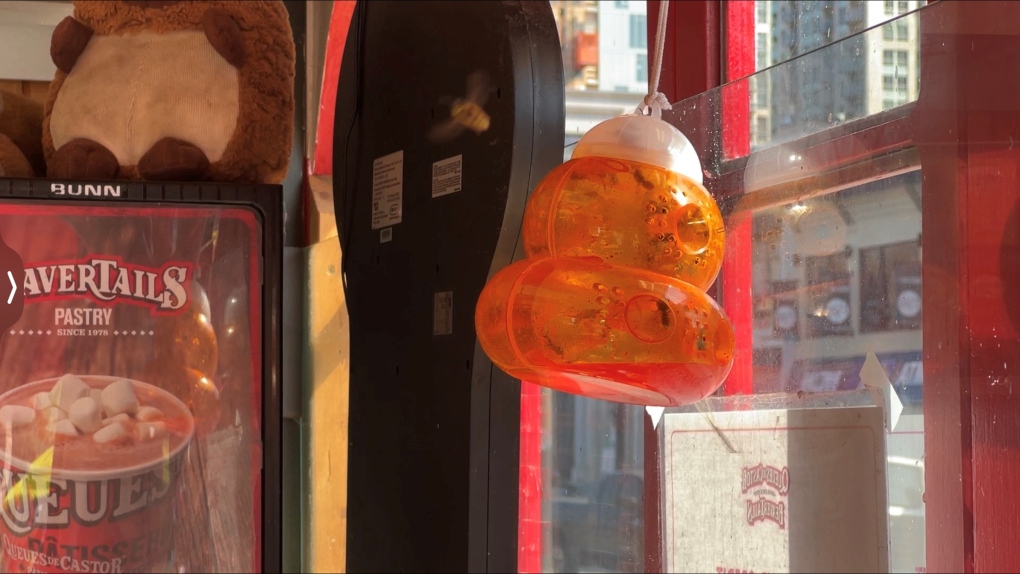
Wrath of the wasps
CTV
There is a buzz in the air and it’s more than that summertime weather we’ve been feeling. It's wasps and lots of them.
There is a buzz in the air and it’s more than that summertime weather we’ve been feeling. It's wasps and lots of them.
"They look for us every season they know where to come," says Andy Cullen, who operates the ByWard Market Beavertail stand. “We have three traps and they fill up fast we actually put some of the strawberry lemonade in there because the wasps enjoy it as much as the customers do."
Warmer September weather has meant wasps have had more time to snack on their regular food, pollen-filled flowers but many are no longer producing.
"In the spring you can imagine all these wasps come together and they have a colony that they start up and that colony progressively gets bigger there are lots of babies so there are lots of workers going out feeding on flowers and coming back to the nest so everything is centralized around the nest," says Rosalind Murray, assistant professor in biology at the University of Toronto, Mississauga. "At this time of year that nest breaks down, that queen has often died there’s no more babies being laid there is no nest at all and that means these workers these female wasps are out in the world and they are looking for food so not only can they go further afield because they don’t have to come back to the nest to feed anybody. A lot of their food sources have disappeared."
Robert Caron, area manager with Orkin Canada Pest Control says wasps are attracted to sweet scents, sugary drinks, and a variety of protein-rich foods, and with sunny-warm weather, restaurant patios and people’s backyards can easily see dozens of wasps descend for snacks.
"If you don’t disturb them they’re fine but if you aggravate them that’s when they are going to want to be malicious and sting you," he says. "You see our evenings are getting a little cooler and if you have a brick house or anything that is absorbing the suns heat if makes the building warm so the wasps are attracted to this warmth. At night they are like us they don’t want to be cold. Some common solutions are repellant sprays and traps."





















 Run 3 Space | Play Space Running Game
Run 3 Space | Play Space Running Game Traffic Jam 3D | Online Racing Game
Traffic Jam 3D | Online Racing Game Duck Hunt | Play Old Classic Game
Duck Hunt | Play Old Classic Game